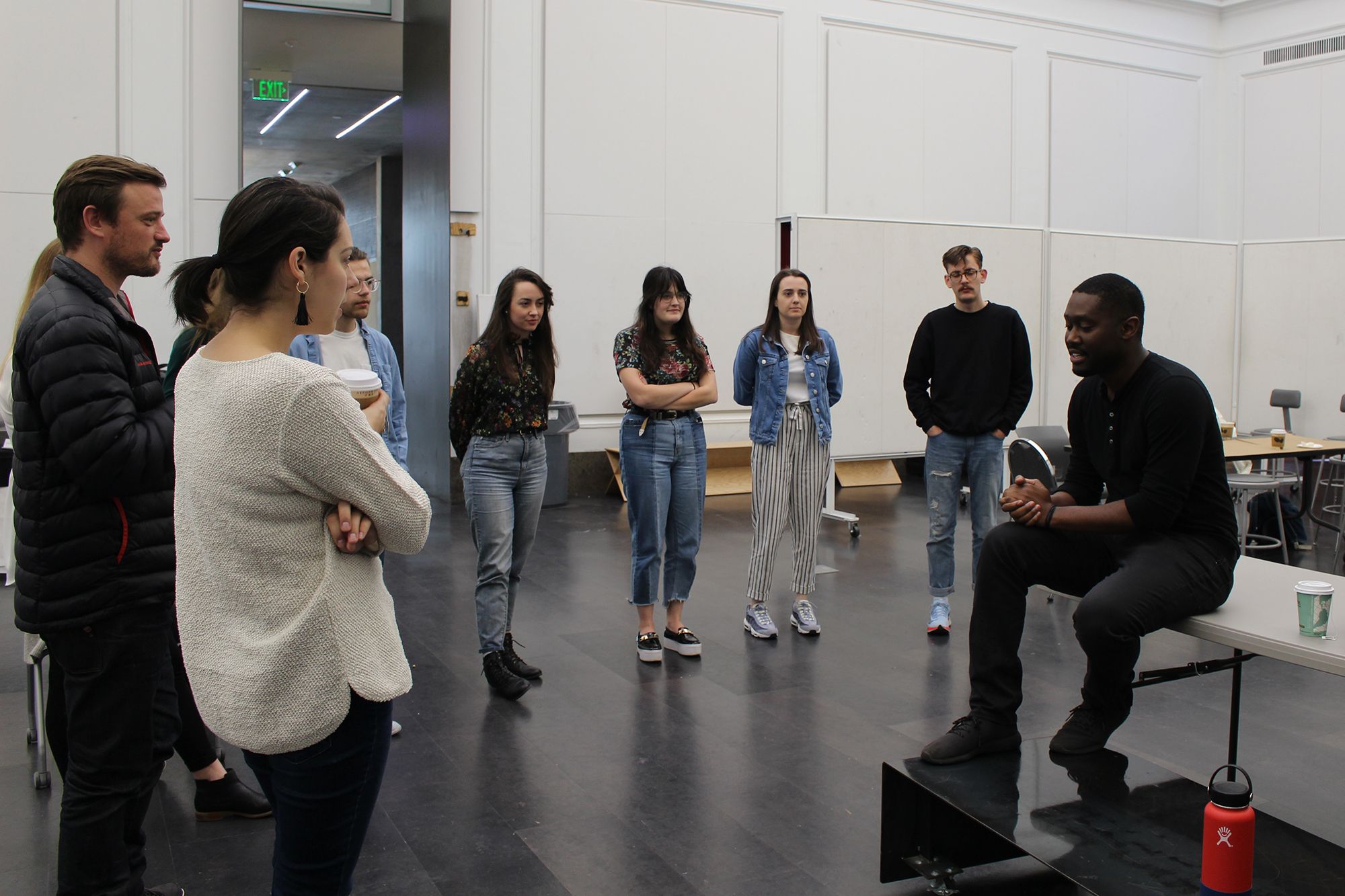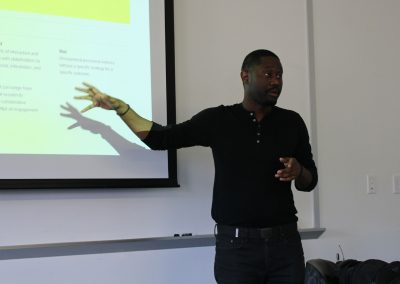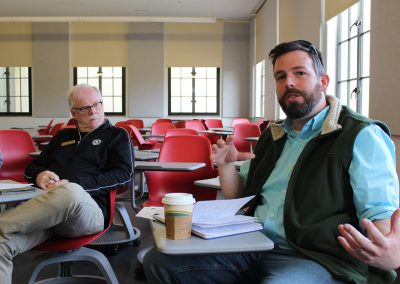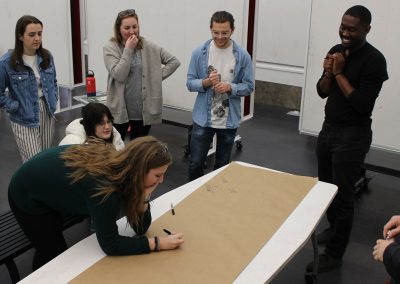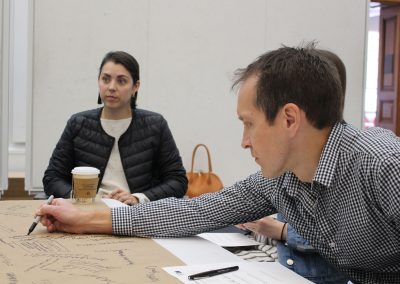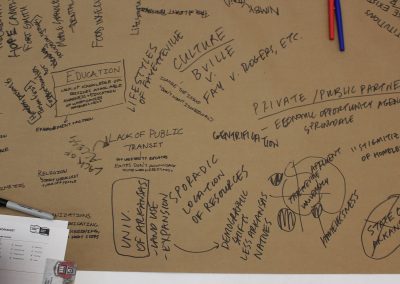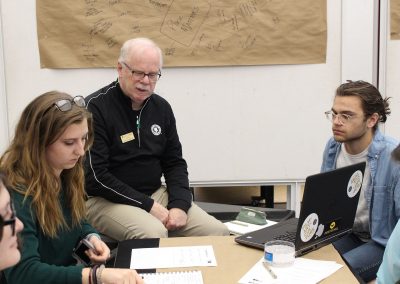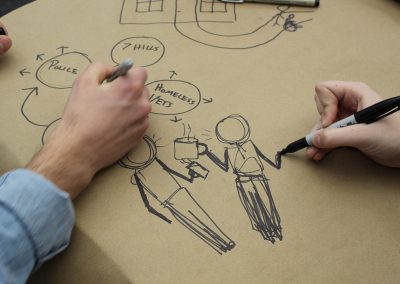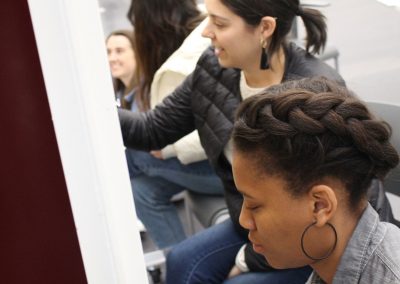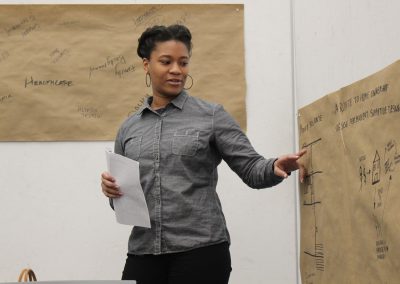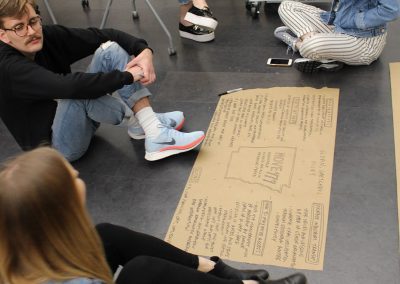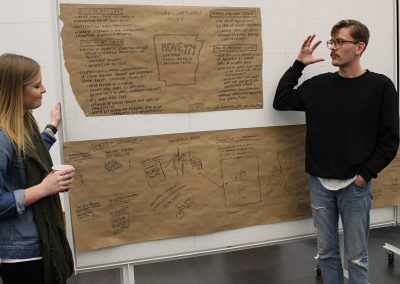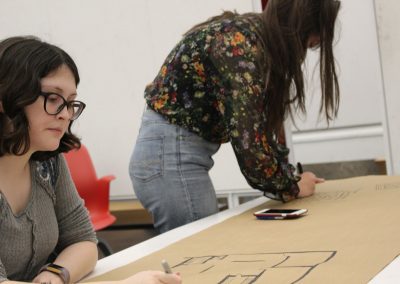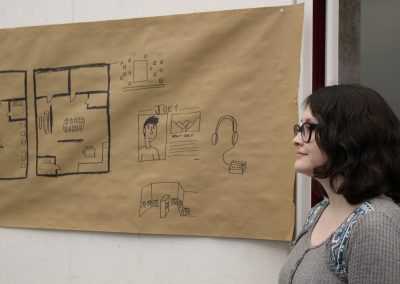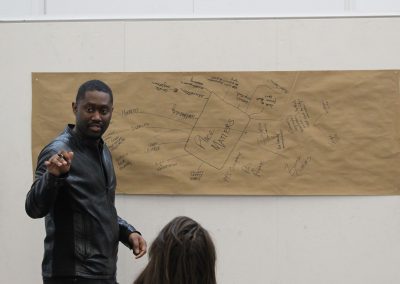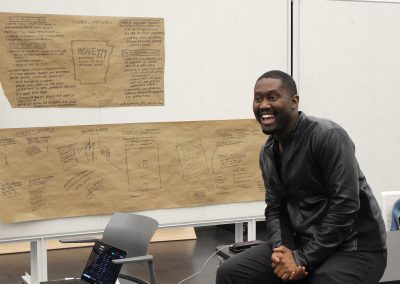Lee saw firsthand how design shapes lives at age 12, when he and his family returned from military deployment in idyllic Comiso, Sicily, to his hometown in Trenton, N.J. “My grandmother’s house, her block, the neighborhood were not well cared for – we were disinherited from the city, the state and the nation,” he recalled. Lee’s parents encouraged him to pursue architecture as a way to change spaces for the better. Following schooling (M.Arch., New Jersey Institute of Technology and B.S.Arch., The Ohio State University) and work at the prestigious Eskew+Dumez+Ripple firm in New Orleans, he has turned his sights on design activism. Most recently, he launched Colloqate Design, a multidisciplinary, non-profit design justice practice based in New Orleans. The firm’s design protests range from posters and paper monuments that reclaim silenced people, events and places to more permanent solutions such as the Claiborne Corridor Cultural Innovation District, a multiunit cultural marketplace that is scheduled for completion in February 2019. That project will revive a neighborhood in Treme that was “disrupted and destroyed by the Highway Act in the mid-’60s – the Claiborne overpass just ripped through that community,” Lee said.
Throughout the day, Lee empowered the students to take their first steps toward activism by emphasizing that design is a continuum, from individual/ephemeral acts that raise awareness to collective/permanent solutions that change lives. “Protest is fundamentally about hope and faith. Being a designer requires faith that what you put on paper has benefits beyond you; it’s about recognizing who the end user will be,” he told the students.
Want to learn more about Bryan Lee’s path toward design activism? Check out his TEDxTU talk, Race, Architecture and Tales for the Hood.
Bryan Lee also presented a lecture, “Design for Justice,” as part of the Fay Jones School of Architecture and Design lecture series. The Fay Jones School Honors Program organized his visit to the University of Arkansas; this Design as Protest workshop was supported in part by the Honors College, which is funding initiatives across campus that spark interdisciplinary learning for honors students.

